
Grades 6-8

Don't have an account yet? Sign up for free
Don't have an account yet? Sign up for free

Have you given any thought to where you will live when you are “on your own” – out in the world earning a living? You will have many decisions to make as you look for a place to call home. In this lesson, your basic economic decision making skills will be used to weigh the pros and cons of home ownership, and to analyze housing options. It’s time to find out what is right for YOU!
Housing options – types of housing available today:
 What is the first thing that comes to your mind when you hear the word “housing”? A two-story house? A high-rise apartment? A townhouse? Chances are the first thing that comes to your mind is the home in which you live right now. As you go out on your own, the housing that suits you best might be quite different from the housing you’ve lived in as you grew up. Let’s look at the options.
What is the first thing that comes to your mind when you hear the word “housing”? A two-story house? A high-rise apartment? A townhouse? Chances are the first thing that comes to your mind is the home in which you live right now. As you go out on your own, the housing that suits you best might be quite different from the housing you’ve lived in as you grew up. Let’s look at the options.
Take a moment to think of all the different types of housing.
In today’s world, there are many kinds of places to live. Did you list any of these options?
 These differing types of homes may be owned or rented. Most apartments are for rent. However, in a cooperative apartment building, residents buy shares of stock, giving them ownership of a share of the property (proportionate to the amount of space they occupy). Residents do not have title to their property; they have shares in the cooperative. Condominiums are similar, but in condos individuals have title to the unit in which they live and have an interest in the common areas, such as grounds, pools, recreation areas, lobbies, etc.
These differing types of homes may be owned or rented. Most apartments are for rent. However, in a cooperative apartment building, residents buy shares of stock, giving them ownership of a share of the property (proportionate to the amount of space they occupy). Residents do not have title to their property; they have shares in the cooperative. Condominiums are similar, but in condos individuals have title to the unit in which they live and have an interest in the common areas, such as grounds, pools, recreation areas, lobbies, etc.
Town homes and duplexes may be owned or rented. Occupants pay an additional monthly fee for maintenance of their yard space and other common areas shared by all residents of the complex. If you rent a townhouse or duplex, the fee is generally included in your rent payment. Some townhouse complexes charge a large enough fee to provide for all exterior maintenance on the units (painting, roof repair, etc.).
Although single-family homes can be rented, the occupant owns most. As an owner, you are responsible for all maintenance and yard care for your home. When renting a single-family home, the maintenance is the responsibility of the owner; but in many cases, the owner and renter may agree that yard care is the responsibility of the renter.
Mobile/modular homes may be owned or rented. If you own, you will pay a rental fee for the space/pad that includes property taxes, maintenance of grounds (at least shared areas), and other shared facilities in the complex. Most mobile homes are purchased with a personal loan (like automobiles) rather than a mortgage loan.
Rent or buy? Apartment? Town home? Single-family house? There are many decisions to make. You will have to look at what kind of housing suits your lifestyle and whether renting or buying is a better choice for you at this time.
What Do You Want?
Let’s take a look at your housing needs. Use this checklist to help determine what kind of housing you should consider.
Space needs:
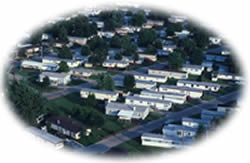
Life-Style
Now take a look at the space needs you indicated above. If you want a lot of special-purpose rooms, you probably will want a single-family house, a large duplex or townhouse, or a large mobile home. A place with three bedrooms can provide those extra spaces (assuming you don’t need all three as bedrooms); a basement can also provide space for those special-purpose rooms, for pets, and for storage (assuming the basement has no water problems!).
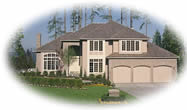 On the other hand, if you need only a living room, kitchen, 1-2 bedrooms, and baths, an apartment or small townhouse may work well for you. As you look at housing options, be sure to keep your space requirements in mind.
On the other hand, if you need only a living room, kitchen, 1-2 bedrooms, and baths, an apartment or small townhouse may work well for you. As you look at housing options, be sure to keep your space requirements in mind.
Look at your life-style options. Having a pet can be a determining factor in your housing choices. Many apartment complexes do not allow cats or dogs, or charge an additional fee for having them. A small dog or cat might be quite comfortable in an apartment, whereas a large or very active dog may need outside space to run and exercise.
If you love to work in the yard, to garden, and to work on a house, ownership of a single-family home is for you. But, if you don’t enjoy those things or don’t have time, then look at other options. An apartment (usually no maintenance for you) or a townhouse where you pay a monthly fee to have all yard work and outside maintenance done might be better for you. Of course, if you own a house and have sufficient income, you can hire someone to do that outside work, too. Would that fit your budget?
If fixing up a place to reflect your style is important, remember that rental properties have limits on what you can do. Many have restrictions on what can be placed on walls, on window treatments, and on other decorating. Read the lease carefully to be sure you know what is allowed.
There are other factors to consider when deciding what type of housing you want. List as many things as you can, that one must consider in their selection of a place to live.
Pros and Cons of Renting
Now that you know the things to consider when deciding what housing will fit your needs, lets take a look at the pros and cons of renting versus buying.
Renting has advantages for most people at some point in their lives. This is especially true when you are starting out on your own as a young, single adult. As we noted above, renting an apartment involves no responsibility for repairs, maintenance, and other aspects of home ownership that can be both costly and time-consuming. Rental complexes may also provide many of the recreational facilities you would like, such as a swimming pool and tennis court. Apartments and other rental units often provide laundry facilities, which would save you the initial expense of purchasing laundry equipment.
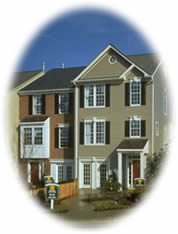 Another advantage of renting is that it provides more mobility or flexibility. As a young person, you are more likely to move rather frequently due to job changes and family changes (getting married, having children), etc. It is easier to move quickly when you are renting, because leases for rentals are easier to get out of than selling a home. A lease is a contract between the landlord and the tenant indicating that the tenant has the right to use a particular living unit for a period of time, such as one year. For this right, the tenant promises to pay the landlord a specified amount of rent over the period of time of the rental. Most leases will allow you to “buy out” of the lease by paying a penalty (often an additional 1-2 month’s rent) if the lease is not up when you want to move. In some cases, the landlord will require no additional rent when you move out early if another renter suitable to the landlord is found who will assume your lease. Selling a home when you decide to move is usually a much longer process-taking months and sometimes years. The length of time depends on a number of factors including the available supply and demand for homes in an area and the relative demand for the type of house that you put on the market. For example, if you own a two bedroom older home, and that type of house is not currently popular in your area, your house will likely not be sold very quickly.
Another advantage of renting is that it provides more mobility or flexibility. As a young person, you are more likely to move rather frequently due to job changes and family changes (getting married, having children), etc. It is easier to move quickly when you are renting, because leases for rentals are easier to get out of than selling a home. A lease is a contract between the landlord and the tenant indicating that the tenant has the right to use a particular living unit for a period of time, such as one year. For this right, the tenant promises to pay the landlord a specified amount of rent over the period of time of the rental. Most leases will allow you to “buy out” of the lease by paying a penalty (often an additional 1-2 month’s rent) if the lease is not up when you want to move. In some cases, the landlord will require no additional rent when you move out early if another renter suitable to the landlord is found who will assume your lease. Selling a home when you decide to move is usually a much longer process-taking months and sometimes years. The length of time depends on a number of factors including the available supply and demand for homes in an area and the relative demand for the type of house that you put on the market. For example, if you own a two bedroom older home, and that type of house is not currently popular in your area, your house will likely not be sold very quickly.
Another major advantage of renting is that it doesn’t require a large outlay of cash. Most rentals require a security deposit (usually equal to 2-3 month’s rent), but that is much less than is normally needed for a down payment when buying a home. Monthly cash costs may also be reduced, as utilities may be included in your rent payment.
There are, of course, disadvantages to renting. Can you identify those? List them here:
A major disadvantage of renting is lack of control over the property. The owners/managers of the property are responsible for repairs and general upkeep; if they do not do this well and promptly, you might be stuck with unpleasant (or even unsafe) living conditions (from leaking faucets to broken windows) for some period of time. Property owners can raise the rent (with proper notice), making your costs higher. They can also put restrictions on the property, such as not allowing children or pets, and not permitting you to do redecorating.
Renting also provides no tax or equity benefits for you. Although you are helping pay the owner’s property taxes through your rent, you cannot claim any deduction for these taxes on your tax return. The owner is also gaining equity in his/her property, but you are not. Equity is increased value in any property you own. But, as a renter, you are not building any equity.
Pros and Cons of Buying a Home
We’ve already discussed some advantages of buying a home. List the advantages of buying you already know:
Many of the advantages of home ownership have to do with your feelings – pride of ownership; freedom to decorate, landscape and maintain the place to your tastes; security and independence. All of these are aspects of control – your control over the property in which you live. But the biggest advantage of home ownership might be financial. There are several financial advantages including equity; tax deduction for mortgage, interest and property tax deductions.
 Building up financial equity in a home is one benefit of home ownership. Since most homes increase in value over time, the owner’s equity increases. For example, if you buy a home for $l80,000 and its market value increases to $200,000 in three years, the difference of $20,000 is an increase in your owner’s equity. Of course, the housing market (and economic conditions) vary, so, like any investment, there is no guaranteed return.
Building up financial equity in a home is one benefit of home ownership. Since most homes increase in value over time, the owner’s equity increases. For example, if you buy a home for $l80,000 and its market value increases to $200,000 in three years, the difference of $20,000 is an increase in your owner’s equity. Of course, the housing market (and economic conditions) vary, so, like any investment, there is no guaranteed return.
Another way in which buyers increase their equity is through paying off their debt on the house. Most people do not buy their homes with cash. Instead, they take out a mortgage (debt) on the house. Generally, they make a payment on the mortgage each month, similar to the payments make. With home ownership, though, part of that monthly payment goes toward paying down the debt. As they pay down the debt, buyers gain more equity in their home.
Tax benefits are the other advantage of home ownership. In Lesson 6, we will discuss the cost of borrowing money to buy a home. That cost is “mortgage interest” – the money you pay for the use of someone else’s money (usually a financial institution’s) when you borrow funds to buy a house. Although mortgage interest is a large part of your housing payment, you can deduct this interest from your taxable income on your federal income tax return and (in some states) on your state income tax return. This can save you a fairly substantial amount of income tax. In addition, you will pay property taxes on a home that you own. Those property taxes are also deductible from taxable income on your federal income tax return and some state income tax returns, and thus offer you additional income tax savings.
How much can these tax benefits save? Go to the Home Loans Benefits Calculator site to calculate the tax benefits for these two buyers, using the following information about mortgage and tax costs (use all of the figures provided: we’ll explain terms we haven’t discussed, such as “discount points,” in Lesson 6). Be sure to plug in the figures under the “options” tab first; then click on the “Results” tab. From there, click on the “Explanation tab,” and click on deduct mortgage interest and various costs and benefits (they are underlined and highlighted). This will give you a full explanation of the mortgage interest and property tax deductions and of how the calculator figures the tax savings.
| Example 1: Maria Sanchez | Example 2: Frankie Williams | |
| Loan amount | $ 120,000 | $ 100,000 |
| Term in years | 30 | 30 |
| Interest rate | 7% | 7% |
| Discount points | 1 | 1 |
| Origination fee | 0 | 0 |
| Other loan costs | 1,500 | 1,000 |
| State & fed tax rate | 38% | 24% |
| Appraised value | $ 145,000 | $ 125,000 |
| Yearly property tax | 2,500 | 2,000 |
| Yearly homeowners insurance | 600 | 650 |
Renting vs. Buying: What is Right for You?
You have many decisions to make about your first housing choice. Remember the decision grid used in the lesson on using credit? If not, take a look at the decision-making process.
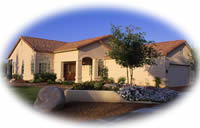 A first step for your housing decision is to use the decision grid to analyze your housing options. Use the criteria you identified related to your space needs and lifestyle. When you have done that, you also need to analyze the financial pros and cons of renting versus buying. We’ve already noted that buying has some major financial benefits, based on the mortgage interest and property tax deductions, as well as the opportunity to build up equity. But, we also know that renting requires less initial money investment. So, which is better in the long run? Use the calculator to compare renting to buying, using the following data for Donnelle and Sean.
A first step for your housing decision is to use the decision grid to analyze your housing options. Use the criteria you identified related to your space needs and lifestyle. When you have done that, you also need to analyze the financial pros and cons of renting versus buying. We’ve already noted that buying has some major financial benefits, based on the mortgage interest and property tax deductions, as well as the opportunity to build up equity. But, we also know that renting requires less initial money investment. So, which is better in the long run? Use the calculator to compare renting to buying, using the following data for Donnelle and Sean.
For each set of data, start with the “Inputs” tab, and enter the correct numbers. Note that some of the categories in the calculator are underlined (i.e., “Appraised Value,” “Savings Rate”). Be sure to click on those to go to an explanation of that item so that you will understand how this comparison of renting versus buying is calculated. Once your numbers are plugged in, go to the “Results” tab to see the comparison. Again, click on the underlined items there to read the full explanation. Write down the numbers (or print the results page), then go to the explanation tab for some final discussion of this calculation. Then answer the questions below.
| Donnelle | Sean | |
| Monthly rent | $700 | $600 |
| Monthly renter’s insurance | $15 | $15 |
| Annual rent increase | 4% | 4% |
| Purchase price | $125,000 | $100,000 |
| Appraised value | $125,000 | $100,000 |
| House appreciation rate | 3% | 3% |
| Savings rate | 4% | 4% |
| Your state + federal tax rate | 38% | 26% |
| Years before sell/pay off loan | 7 | 7 |
| Loan amount | $100,000 | $90,000 |
| Term in years | 30 | 30 |
| Interest rate | 7% | 7% |
| Discount points | 1% | 1% |
| Origination fee | 0 | 0 |
| Other loan costs | $1,000 | $1,000 |
| Yearly property tax | $2,000 | $2,000 |
| Yearly maintenance | $700 | $700 |
| Yearly homeowner’s insurance | $600 | $600 |
| Selling costs (% of selling price) | 10% | 10% |
Questions
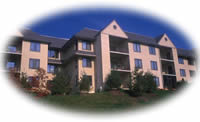 Based on the long-term financial benefits, what would you recommend Donnelle do – rent or buy?
Based on the long-term financial benefits, what would you recommend Donnelle do – rent or buy?So What Do I Do Now?
As you know, there are other things to consider regarding the financial pros and cons of renting and buying. You need to:
And, of course, in making a final decision, you need to consider the housing requirements you identified earlier – including space needs and lifestyle. Before you continue, make sure to review the pros and cons of home ownership.
Now, let’s help Sean make a decision, based on the information provided below. Use the decision-making grid to help Sean make a choice about housing. Be sure to include both financial criteria and lifestyle criteria in analyzing the options.
About Sean:
Sean is starting his first job and wants to move into a place of his own. He has found a 2-bedroom apartment within walking distance of work, where the rent is $800 per month; he would need to pay the first and last-month’s rent ($1600) when he signs the lease. He has also found a 2-bedroom house in a neighborhood a little farther away from work. The house can be bought for $90,000, and he needs a down payment of $2,000. Monthly mortgage payments will be $900, including taxes and insurance.
Sean has $3,000 in savings. He is making enough money to cover the monthly costs for the apartment or the house, but he really could use a new car, especially if he has to drive to work every day. Sean does not have any pets, works a full week (but no overtime), and enjoys working outdoors. He plans to stay with this job for about three years, then look for a job in another community (he’s always wanted to live out in the mountain states).
Use the calculator to figure out the financial benefits in the long run. Then use that information and other information to fill out criteria for the decision-making grid.
| Monthly rent | $800 |
| Monthly renter’s insurance | $15 |
| Annual rent increase | 4% |
| Purchase price | $90,000 |
| Appraised value | $90,000 |
| Savings rate | 4% |
| House appreciation rate | 3% |
| Your state & federal tax rate | 38% |
| Years before sell/pay off loan | 3 |
| Loan amount | $88,000 |
| Term in years | 30 |
| Interest rate | 7% |
| Discount points | 1% |
| Origination fee | 0 |
| Other loan costs | $1,000 |
| Yearly property tax | $1,500 |
| Yearly maintenance | $800 |
| Yearly homeowner’s insurance | $500 |
| Selling costs (% of selling price) | 10% |
What would you recommend for Sean: rent the apartment or buy the house? Explain your answer.
If you’ve read all the links in this lesson, you’ve learned a lot about housing choices! As you explore your own options for buying a home, you will need to learn more about the costs of home ownership, about how much you can afford, and about financing a home purchase.

Grades 6-8
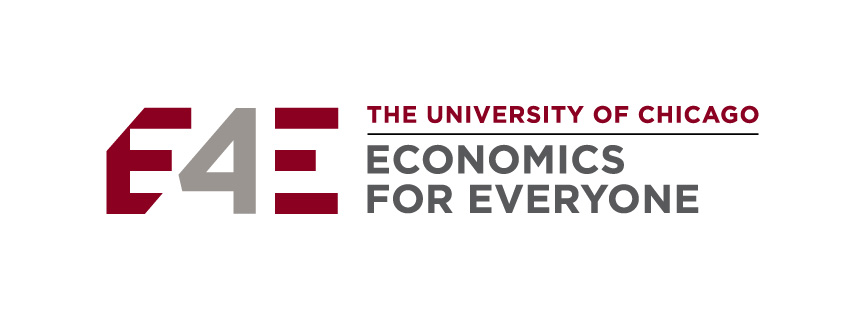
Grades 9-12
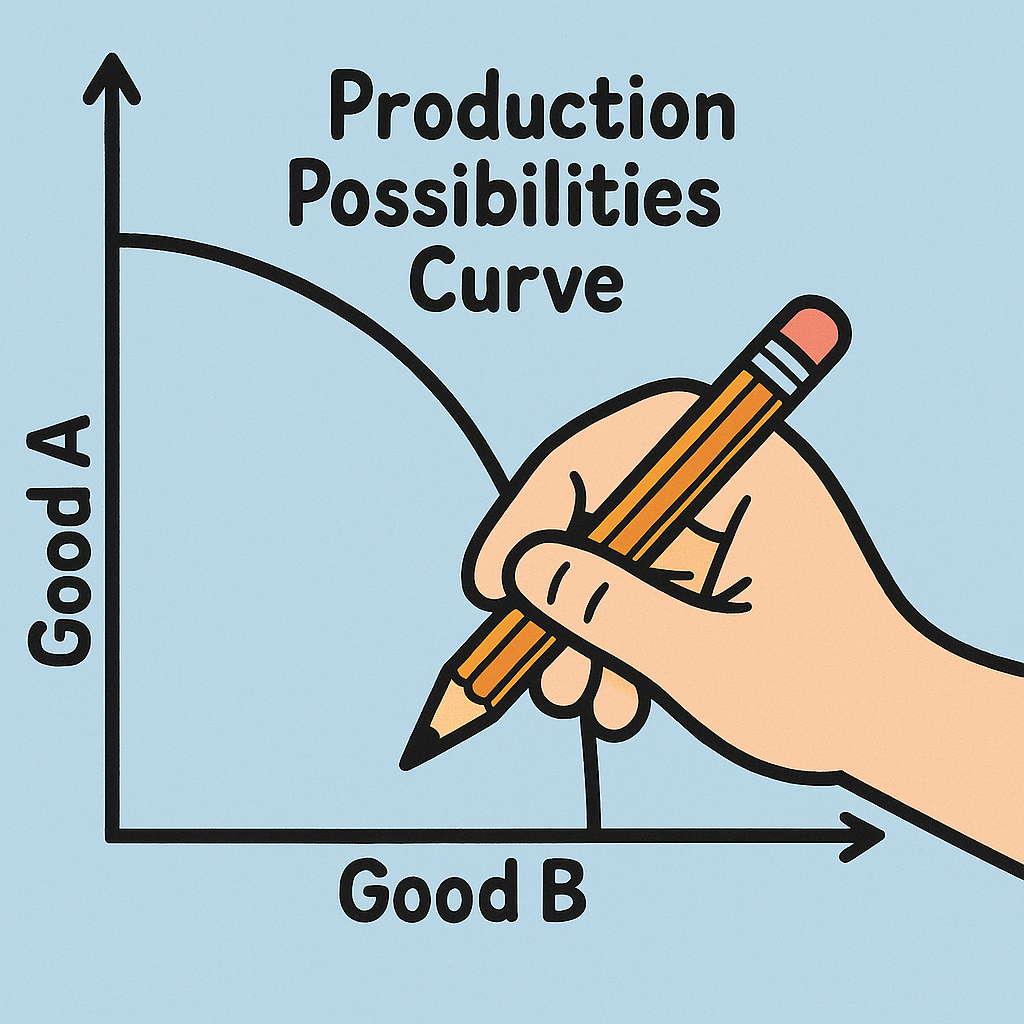
Grades 9-12

Grades K-2, 3-5
